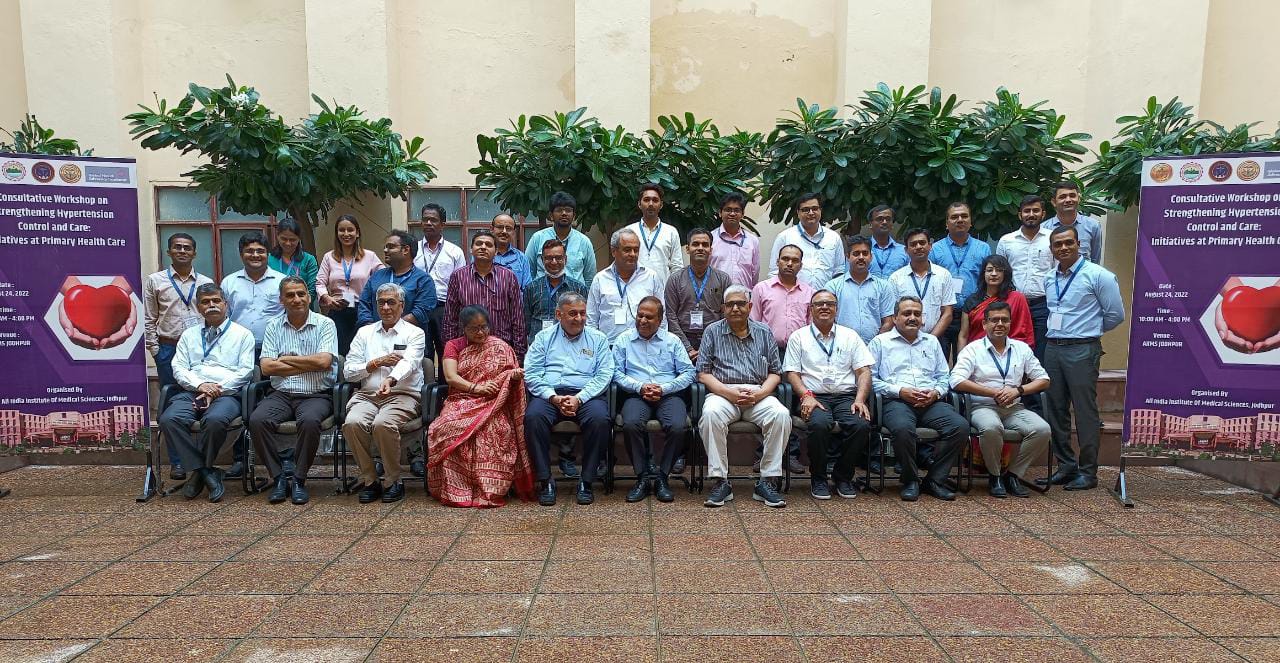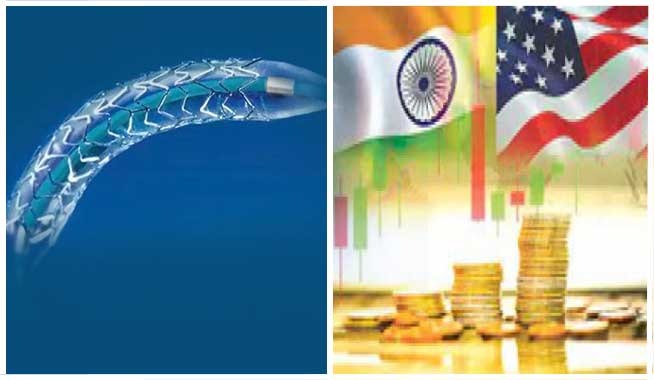High BP affects one in every four adult Indians; needs immediate priority in public health programme: Top health experts
Participating in a programme organized at AIIMS Jodhpur, eminent doctors and senior health officials emphasized on the critical need to control hypertension in time Taking cognizance of the increasing cases of high blood pressure in the country, top


Participating in a programme organized at AIIMS Jodhpur, eminent doctors and senior health officials emphasized on the critical need to control hypertension in time
Taking cognizance of the increasing cases of high blood pressure in the country, top doctors from the All India Institutes of Medical Sciences (AIIMS) and senior government officials stressed on the need to control it in time. They believe it is high time that high blood pressure be prioritized as a public health emergency. They also suggested that improvements in screening of patients with high blood pressure can help ensure that their blood pressure remained under control.
During this high-level meeting held at AIIMS Jodhpur, the experts discussed the need to control non-communicable diseases (NCD), especially the alarmingly increasing number of high blood pressure patients. The one-day brainstorming held on Wednesday included top experts from AIIMS Jodhpur and Gorakhpur, Dept of Health and Family Welfare, Gujarat, ICMR-National Institute for Implementation Research on NCDs (NIIR-NCD), National Health System Resource Centre (NHSRC) and India Hypertension Control Initiative (IHCI).
Although easy to diagnose and relatively simple to treat with low cost medicines, high blood pressure is now a full-fledged health crisis with at least 1 in 4 adult Indians suffering from this condition. It is considered the world’s largest killer, responsible for at least 10.8 million deaths and 212 million disabilities adjusted life years (DALY). World over, at least 1.4 billion people live with this chronic condition. In India, untreated and uncontrolled blood pressure has become a leading cause for premature death and disability.
Speaking at the event, Dr A.M Kadri, Executive Director, State Health System Resource Centre, Government of Gujarat said, “Uncontrolled hypertension, considered to be the cause of maximum heart attacks in India, is most impacted by lack of treatment adherence. Our estimation is that only half of the actual number have been diagnosed and of those, only one in ten have their blood pressure under control. While all NCDs require a continuum of care and treatment, it is critically important to focus on hypertension and diabetes mellitus, also called the silent epidemics of India.”
To support India’s commitment of 25% reduction in prevalence of high blood pressure by 2025, the India Hypertension Control Initiative (IHCI), a multi stakeholder initiative led by the Ministry of Health & Family Welfare, World Health Organization, India, the Indian Council of Research and Resolve to Save Lives (technical partner), was launched in 2018. Currently it is being implemented in 105 districts across 21 states covering 15,000+ health facilities. Talking about the success and learnings from IHCI, Dr Piyush Gupta, Cardio-Vascular Health Officer (CVHO), WHO, Jaipur, said, “Having state specific treatment protocols was a game changer for us. It improved control rates, medicine supplies were better managed and streamlined the work load of health workers at the front line. We are also actively working towards ensuring that people come back for their treatment.”
Calling the consultation a timely and important step towards a pan-India collaborative effort to prioritize hypertension, Dr Surekha Kishore, Executive Director, AIIMS Gorakhpur said, “The doctors, public health experts, medical associations should come unite as a coordinated work force to battle the crisis of undetected and untreated hypertension. As subject matter experts, it is our responsibility to ensure that we keep the spotlight on this public health crisis which is worsening by the day.”
Ending the deliberation with a session on working strategy, Dr Pankaj Bharadwaj, Additional Professor, Dept. of Community and Family Medicine and Dean, School of Public Health, AIIMS Jodhpur, said, “The medical fraternity across the country take full cognisance that this is a need of the hour. With local level solutions, awareness building, creating robust patient support groups, discussions with policymakers, we will look for ways to strengthen health delivery for hypertension. A lot of good work is already happening. It would be worthwhile to highlight those innovations and best practices.”
The recently release National Family Health Survey (NFHS) 5 report reveals that more and more younger people are falling prey to hypertension. The findings also lend credence to the fact that although easy and affordable to treat, treatment adherence rate for this condition is the poorest. Experts claim that uncontrolled hypertension – a major risk factor for heart attack and stroke, is probably one of the main reasons why over the last decade, cardiovascular diseases have emerged as the top killer in India.






